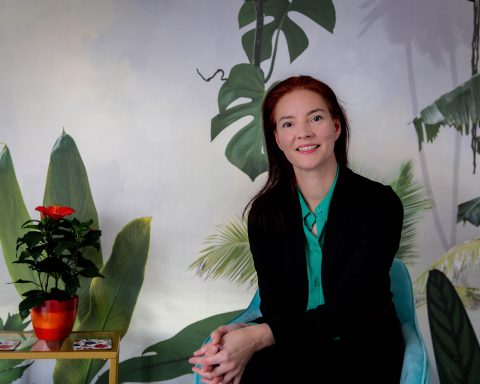This April, our editor-in-chief, Ana Ribeiro, told us memories of her father and his passing a year ago. Today, I would like to add some thoughts on the event each of us is headed for – death.

Shortly before the accident, I had ridden to the city center on a tram 8. When we were approaching the main station on Rosa-Luxemburg-Straße, a biker cut off the tram so that the conductor had to sharply put on the brakes. I was sitting right behind the latter and heard him swear, “Gee, you’re free to kill yourself, but not here!”
Luckily, nothing happened. We rode on to Augustusplatz, where I got off and went inside the university buildings. When I came out again, I saw ambulance and police cars on Goethestraße. Thirty minutes later, I learnt about the fatal accident – and with dismay recollected the earlier incident.
Had Death been roaming our city that night in search for a casual victim? Had the “Reaper” tried to “reap” the biker on Rosa-Luxemburg-Straße but then claimed the woman on Goethestraße instead?
The death of a person as young as her on the one hand terrifies us because of its randomness.

On a gable of Leipzig’s Neues Rathaus, you can read a Latin saying, expressed in the unique brevity of that language: Mors certa – hora incerta. A translation could be: “Nothing is as certain as death – yet nothing as uncertain as its hour”. The biker’s death proves the second half of the saying. Death may strike anyone, anytime, anywhere. Even here in Leipzig!
On the other hand, today, most people don’t die at 48.
In Germany, the average life expectancy is about 81 years, and continues rising. Yet here, the saying’s first half comes into play. Even if we escape early death from injury or disease, death becomes inescapable someday, due to our body’s natural decay. In other words, we end up being executed by time – without a right to appeal against the sentence of death. To be sure, we don’t realize that in the first place.
Every day, there are ordinary people’s death notices in the newspaper. Every few weeks, media tell us that an (elderly) celebrity has died.
However, we don’t know the people in the newspaper, and we generally don’t have things in common with celebrities. It’s only when sooner or later our grandparents and then parents die that we become aware of our own mortality, as we figure: now we are children or grandchildren – but once, even our grandparents were grandchildren, and their grandparents died. Consequently, the day will come when it’s our turn to be grandparents – and die.
At the beginning of one’s life, one could think that one’s generation is the “end of history”, and will last forever. We grow up and become adults, while parents and school prepare us for “life”. They don’t tell us about afterwards; and indeed, it’s then so far away – sixty, seventy, eighty years – that we couldn’t grasp it anyway.
We live our life in the present, or sometimes look back to the past – to dead people in history books or cemeteries. We smile at, or condemn, things they didn’t know yet, and things they didn’t do as we’d do them today.
The longer they have been dead, the less we can imagine them as living flesh and blood – that is why colored images from for example an event as early as World War I (1914–1918) make a scary, surreal impression on us; just as the voice recording of 19th-century statesman Otto von Bismarck (1815–1898) that researchers identified in 2012.
However, take a picture of yourself, your family and your friends and make yourself clear that in 100 years or, more likely, earlier, all people in the picture will be dead and buried. Historians may look back to them – and only the person who today is a baby may still be alive to decorate your grave. By the way, 100 years comprise some 36,500 days or 3,153,600,000 seconds – the latter number looks huge, but consider how short a second is: now another one has passed – and another one…
The transience of everything worldly is expressed by another Latin saying, made famous by the Catholic Church: Sic transit gloria mundi – “Thus passes the glory of the world”. Until the 1960s, popes still wore a crown, which they received after their election (but today have given up as a symbol). Three times during the coronation, the master of ceremonies would turn to the new pope, proclaim the said phrase and burn a bunch of flax to illustrate his words. This was to remind the pope, who was being carried on a sedan throne like a king or emperor, that despite his overwhelming authority on Earth, after all, he remained a human, and was bound to die.
Indeed, everybody is. What can we do about it? Nothing (at least for now, and perhaps forever).
How can we deal with it? Some hope for an afterlife in a different world; others to be reborn in ours. In a subsequent LeipGlo piece, I will reflect on what may come after death. In any case, given the limited time we have at our disposal, it can’t be wrong to very carefully choose the things we want to do, and do these things as early, as timely as we can.

For all we know
This may only be a dream
We come and go
Like a ripple on a stream
So love me tonight
Tomorrow was made for some
Tomorrow may never come
For all we know
In memoriam
Eliakim Araujo, 28/04/1941-17/07/2016








